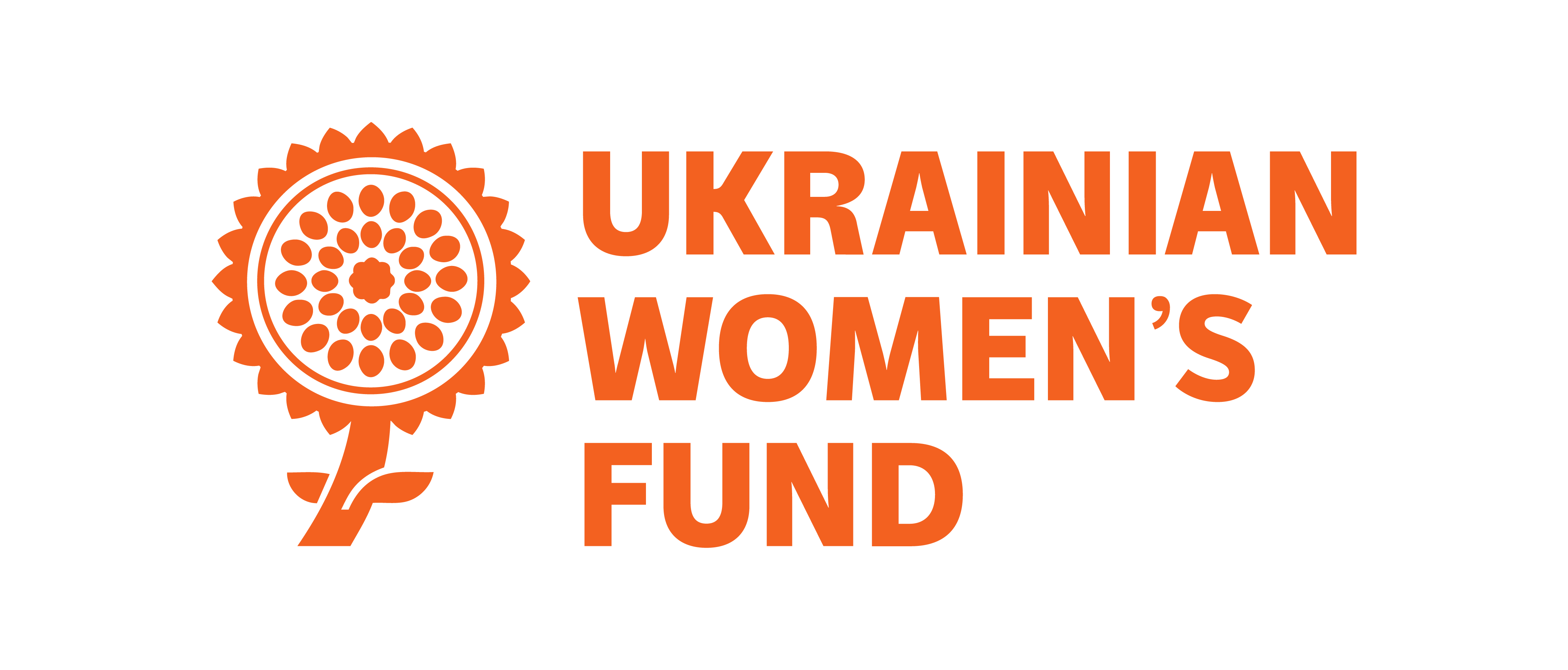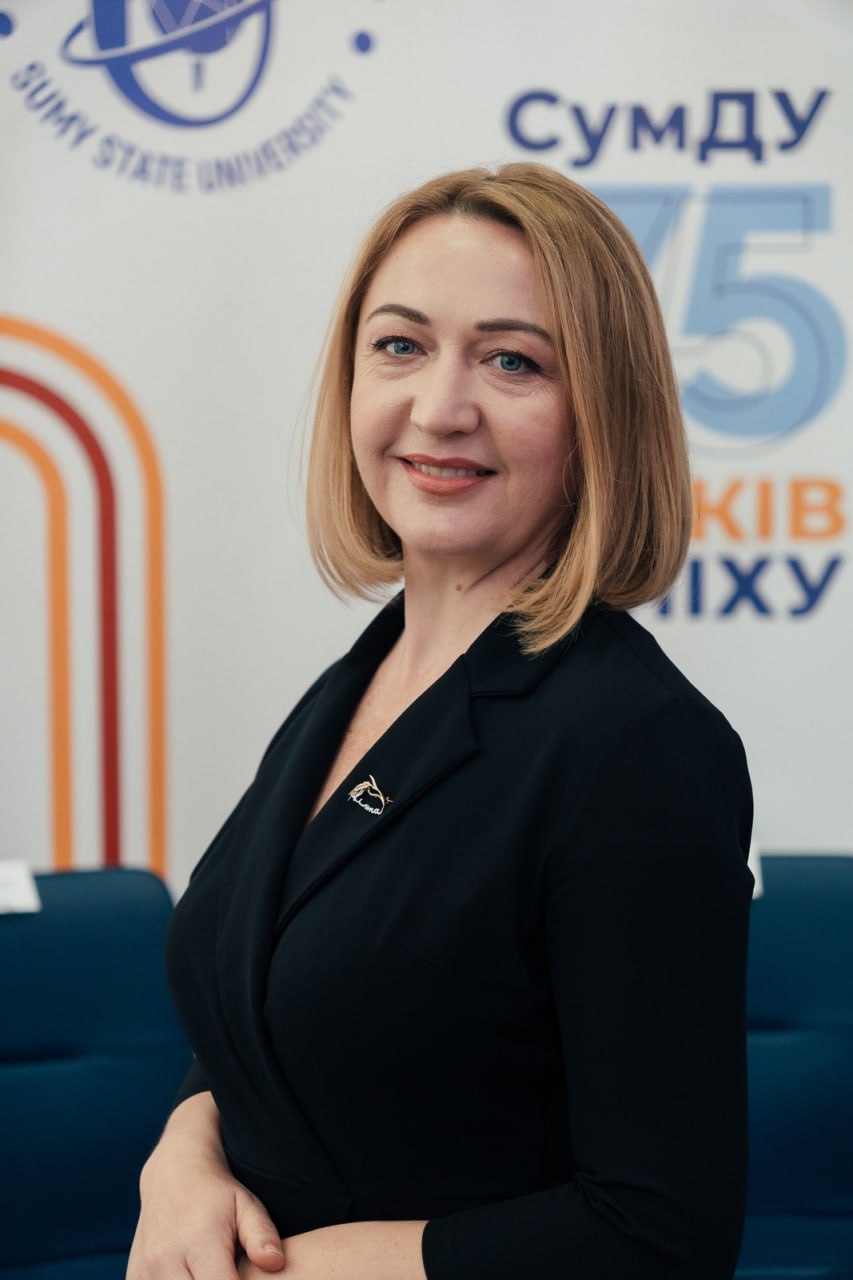This visit was part of the project “Network of gender think tanks: capacity development for advanced policy design, impact assessment, strategic advocacy, and specialised policy communications” implemented by the Ukrainian Women’s Fund with the support of the European Union. The programme of the trip was prepared by the Centre for Equality Advancement (CEA), a Lithuanian partner of the project, which provided an exchange of experience in the field of gender-sensitive policy development and application of gender mainstreaming tools.
“The knowledge and experience we gained in Lithuania proved invaluable when the Lebedyn community approached us with a request to develop a gender profile,” says Andriana Kostenko.
The team of the NGO “Intellect of Sumy Region” focuses its work on Sumy region and maintains close cooperation with local self-government bodies. Their analytical efforts aim to strengthen the capacity of local authorities in data collection — particularly in gathering gender-sensitive data.
“We received the request to develop a gender profile in the context of the full-scale invasion. Sumy region has been under constant shelling, and community budgets are extremely limited. However, thanks to our previous cooperation with this community, they understood that high-quality analytics could help attract additional resources and support — and, most importantly, provide insight into how the war has affected the population. That is why the need for a gender profile of the community emerged,” explains Andriana Kostenko.
Various structures of the amalgamated community, local activists, NGOs and volunteers were engaged in the data collection. Information was collected on 121 settlements of the Lebedyn Amalgamated Territorial Community.
“The gender profile includes detailed data on population groups that remained in the communities, as well as new social groups that have emerged as a result of the full-scale invasion. We documented the sex and age composition among internally displaced persons, persons with disabilities affected by hostilities, those who lost their homes or whose housing was damaged. We counted the number of families with members who are combatants, veterans, or female veterans. Other vulnerable categories were also included — single mothers, low-income individuals, persons with disabilities, and elderly people. For each category, data was disaggregated by sex and age.,” says Andriana Kostenko.
Among the volunteers who contributed to the development of the gender profile was Olena Solonenko, a representative of the NGO Women of Lebedyn Region. Thanks to the gender profile, a gynaecology room with barrier-free access was opened in her home village of Budylka.
“In our application to open the gynaecology room, we relied directly on the data from the community’s gender profile. The nearest hospital is 15 km from Budylka, but the nearest villages are also included in the community- Borovenka and Bobryk. From Bobryk, it takes a whole hour to get to the city. Let us not forget about the long queues and the fact that there is only one bus serving three villages, running just three times a week. It leaves in the morning and returns at noon, so it was often impossible to get to a doctor at all. And because our gynaecology room is barrier-free, it is worth noting that even in the city, there is neither such a clinic nor a gynaecological chair like the one we have. We have an agreement with the hospital — the doctor comes when a sufficient number of patients have registered. At the most recent appointment, there were about twenty women. For a rural area, which is a lot, especially considering that many women had never been taught to take care of their health this way. Also, in the village of Vasylivka, thanks to the gender profile, we were able to open a sewing workshop. It is about women’s financial independence and employment,” says Olena Solonenko.
The Lebedyn community is already actively using the gender profile in its work with donors, local businesses, and for making management decisions. Specifically, they are using data from the gender profile to develop the community’s recovery plan. “Intellect of Sumy Region” has applied a similar methodology in the Mykolaiv, Romny, and Bilopillia communities. Based on their own gender profiles, these communities are also developing tailored recovery plans.
“A gender profile should be a foundational document for every territorial community. In wartime conditions, many public services are not functioning — for example, statistical agencies often cannot conduct large-scale surveys. Without data, government decisions risk becoming arbitrary. That is why the gender profile is so important — it allows us, first, to see the people living in the community; second, to understand who they are (by sex, age, and social categories); and third, to better grasp their needs. This is especially critical during wartime, when the government’s task is not only to ensure security, but also to meet urgent needs and direct efforts toward supporting vulnerable population groups. These profiles make it possible to identify such vulnerable groups and understand their specific needs. After all, an elderly internally displaced person, a veteran, or a family that has lost loved ones — all these people may have entirely different priority needs. In a region like Sumy, which is in a state of constant emergency response, it is absolutely crucial to understand this,” explains Andriana Kostenko.
The authorities of the Lebedyn community were involved in all stages of preparing the document. Before finalising it, “Intellect of Sumy Region” conducted a so-called “crash test”: they presented the draft profile to local councillors and the executive committee, discussed all sections, and collected feedback — which was then incorporated into the final version.
“This way, we gained not only feedback but also genuine engagement. The councillors understood what the document was, and how the collected data could be applied. We also presented them with potential partners — humanitarian organisations that could help address the issues identified in the gender profile,” says Andriana Kostenko, a board member of the NGO “Intellect of Sumy Region”.
The experience of the Lebedyn Amalgamated Territorial Community demonstrates that even in wartime, it is possible to make fact-based decisions that serve the well-being of people. A gender profile is a step toward building a strong, accountable, and responsive community.
The material was produced in framework of the Action “Network of gender think tanks: capacity development for advanced policy design, impact assessment, strategic advocacy, and specialized policy communications” implemented by the Ukrainian Women’s Fund with the support of the European Union. Contents of the publication are the sole responsibility of UWF.

